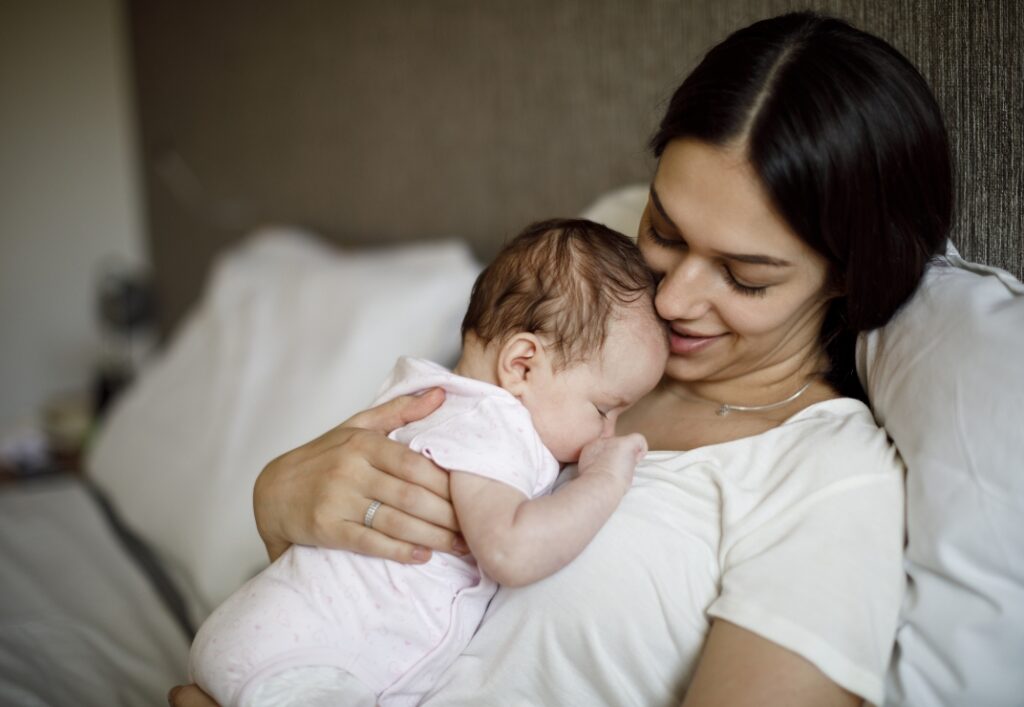
Are you currently thinking about the future and that one day, you would like to start a family? Planning a future family can come with some concerns regarding your fertility. You may be asking yourself questions like, “am I fertile?”, “What if I’m not fertile and I can’t have babies?”, “What if I am fertile now but as I get older, I will have less chance of conceiving?”
These are all natural concerns that women have when they begin to consider starting a family. We are firm believers in taking control of your fertility future, so stick around to find out all that you need to know regarding your fertility today. Including understanding your ovarian reserve, how many eggs you should have left at your age, how medical history can impact fertility and more.
The most common causes of infertility in women are a low ovarian reserve (not having enough eggs left), low-quality eggs (the viability of eggs decreases as we age) and undiagnosed reproductive health conditions. It is important to test your fertility, even before you are ready to have a family, so you are aware of any potential health issues that could harm your fertility.
We are all familiar with the fact that as our bodies age, we become less likely to be able to conceive. But what does it actually mean? Let’s take a closer look at what the ovarian reserve means for the fertility of women.
You are born with all the eggs you will ever have and your age can be an indicator of your egg supply. The number of eggs starts to decline after birth and although it varies from person to person, these are the average number of eggs a woman has throughout their lifetime:
Studies have shown that as women turn 35, the rate of egg loss dramatically increases. The only way to determine how many eggs you individually have is by testing your ovarian reserve.
Too many or too few chromosomes in the egg—aneuploidy—is a concern as women age. When a normal egg is fertilized it has 23 chromosomes, a sperm that also has 23 chromosomes fertilizes it. The embryo that results has the normal total of 46 chromosomes. However, more and more of a woman’s eggs have either too few or too many chromosomes as she gets older. If fertilization occurs, the embryo will also have too few or too many chromosomes; most embryos like this do not result in pregnancy or result in miscarriage.
Normal, age-related changes occur in the ovaries as women get older. A woman is born with approximately one million egg-containing follicles in her ovaries. When she reaches puberty that number drops to about 300,000, of those follicles only about 300 will actually be ovulated throughout her reproductive years. Most of the follicles are not actually ovulated, but are lost through a degenerative process called atresia.
As you have probably heard, a woman’s best chance of conceiving is during her 20s. A gradual decline in fertility begins when a woman reaches her 30s, particularly after age 35. A healthy, fertile 30-year-old woman has a 20% chance of getting pregnant each month. By the time a woman is 40 years old, her chance of conceiving is less than 5% per cycle. Most women are unable to have a successful pregnancy by the time they reach their mid-40s. These percentages apply to both natural conception and conception that occurs by using fertility treatment. The loss of fertility occurs due to a decline in both egg quality and quantity.
There are many aspects of your health, such as your menstrual cycle function, biometrics, STI history and lifestyle, which could indicate or eventually cause an underlying health condition or hormonal imbalance that affects fertility.
Having a hormone and fertility test or speaking to a fertility advisor gives you the opportunity to either treat these issues so you’re at your optimal health when you try for a baby or adjust your timeline for having children accordingly.
Whilst it is possible to have a reproductive health condition and not have any issues with fertility, it’s important to acknowledge that it might become a barrier to getting pregnant and that you might need to plan ahead and take action before trying to conceive.
At Hertility, we’re building a science-backed eco-system of care around every woman. So whatever your results, we have answers and can provide quick referrals to additional blood tests, pelvic ultrasounds, nutrition consultations or fertility treatment if required.
Research shows that the way you choose to live your life today could impact your chances of successfully conceiving in the future. Although the egg which gets ovulated is chosen during the first half of the month (the follicular phase of your menstrual cycle), the maturation and development process of this egg actually starts almost a year prior.
Egg freezing has been part of fertility treatments for a long time, but now there’s an improved way to do it: egg vitrification, also known as rapid freezing. Our experienced, highly qualified doctors and skillful embryologists are leaders in this field and are proud to have helped with the first successful birth in San Diego using this method. Learn more about the process.
Our skilled fertility specialists are here to help. Contact us today and let’s discuss the next phase of your fertility journey.